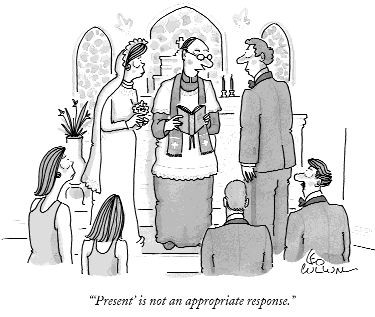Century Marks

Jesus saved: After her mother died when she was six, Rachel was raised by her psychotic, suicidal father. She suffered from anorexia, which nearly killed her. For her own sanity she separated herself from her father, who became a recluse. Later in life she wondered whether she should reconnect with her father. A friend, writer Paula Huston, asked Rachel if she was strong enough to enter her father’s world again. Rachel reminded Paula that when she was at her lowest point in life, she went to church and discovered a Jesus who loved her so much he died for her, “which meant I didn’t have to kill myself after all.” That was what saved her, she said, not her doctors. So what else could she do but try to reconnect with her father in hopes of rescuing him? (Image, winter).
Left behind: The book of Revelation is generally left behind in the thinking of mainline Christians in the West. Revelation reflects the theology of early Christians who lived under persecution, so they wonder what it has to say to those who enjoy religious freedom and material prosperity. But Warren Carter argues that Revelation isn’t about a church living under persecution; rather, it is about how Christians can follow Jesus while living in an empire whose political, economic and cultural power is seductive. Revelation sets up a tension between Christians who accommodate themselves to the empire and those who separate themselves from and oppose the empire—the position advocated by John, the author of Revelation. Admittedly, “for many modern readers, our retirement plans, mortgages, investments, credit cards, and entertainment centers alienate us from John’s polemic,” writes Carter. Yet Revelation wrestles with questions that Christians must address—questions about how to live faithfully in the most powerful country in the world (Interpretation, January).
Limits of power: For the sake of its own security, Israel feels that it has no choice but to attempt to crush Hamas, which has been lobbing rockets into cities in southern Israel. Israel clearly has superior military power and will likely get the upper hand, yet with such an incursion it can win no definitive victory, according to Andrew J. Bacevich, a former army colonel, West Point teacher and now a professor at Boston University. The idea that intervention is a “handy problem solver is an illusion,” says Bacevich, and the longer Israel stays in Gaza the more severe will be the reaction. It will lead to more alienation, resistance and radicalization. “Rather than facilitating political solutions, coercion only exacerbates the underlying problem.” Bacevich thinks there is a lesson here for the United States and its so-called war on terrorism. The U.S. cannot, through intervention, occupation and superior military power, dictate the conditions under which Muslims conduct their lives in distant lands like Iraq and Afghanistan (Boston Globe, January 8).
Be careful whom you elect: An inconvenient truth about the crisis in Gaza is that the militant Hamas party came to power in 2006 through democratic elections—elections pressed upon the Palestinians by Secretary of State Condoleezza Rice. The more moderate Fatah party was supposed to win—with the help of the U.S. The United States Agency for International Development (USAID) not only helped finance the Fatah campaign but provided counsel on things as detailed as the color of the backdrop for the podium where the Fatah party leader, Mahmoud Abbas, was supposed to lead a victory celebration (Christian Science Monitor, January 12).
Staying put: Many Christians think of church membership as a matter of personal choice, and they feel free to go church shopping whenever their congregation no longer meets their needs or they experience some conflict in their congregation. But what if church membership were seen as based on a divine covenant instead of a personal choice? asks Edwin Chr. Van Driel. That might prompt a congregation to say to a disgruntled member who asks to transfer his membership: “We are sorry, but we cannot do this. Obviously there is something that bothers you about our church. We are committed to working on this, however difficult and painful this might be for all of us.” And to someone wanting to transfer in from another congregation, it might say: “We are sorry, but we cannot do this. Obviously there is something that bothers you about your own church. We are fully committed to helping you with that. . . . If you have a conflict with your pastor, or church leaders, we would like to devote our time and energy to sit down with you and see if we can facilitate a process of reconciliation.” Van Driel applies this convenantal concept to the larger issue of denominations splintering and congregations leaving over differences of opinion on issues like homosexuality (Theology Today, January).
Back home: Former megachurch pastor Ted Haggard is back home in Colorado Springs. Instead of leading the city’s New Life Church, he’s selling life insurance out of his home. Haggard, who had headed the National Association of Evangelicals, left the ministry and the NAE post in 2006 after a male prostitute revealed that he had had a three-year, drug-fueled affair with Haggard. The church told Haggard he could never set foot in New Life again and that he had to leave Colorado for good, although the banishment was lifted a little over a year later. Haggard refuses to label himself gay, straight or bisexual. He continues to oppose gay marriage. Alexandra Pelosi, daughter of Speaker of the House Nancy Pelosi, made a documentary about Haggard that was scheduled to appear on HBO January 29 (Newsweek, January 19).
Signs of the times: An atheist group in the United Kingdom is posting signs on buses that say: “There’s probably no God. Now stop worrying and enjoy your life.” An American group posted a similar message on buses in Washington, D.C.: “Why believe in a god? Just be good for goodness’ sake” (New York Times).





